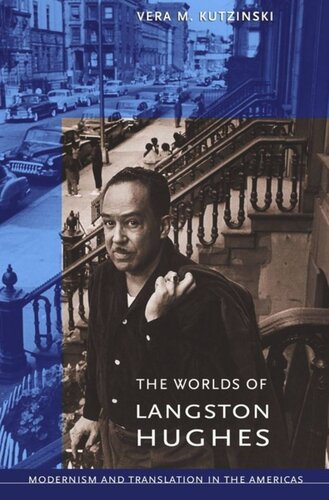

Most ebook files are in PDF format, so you can easily read them using various software such as Foxit Reader or directly on the Google Chrome browser.
Some ebook files are released by publishers in other formats such as .awz, .mobi, .epub, .fb2, etc. You may need to install specific software to read these formats on mobile/PC, such as Calibre.
Please read the tutorial at this link: https://ebookbell.com/faq
We offer FREE conversion to the popular formats you request; however, this may take some time. Therefore, right after payment, please email us, and we will try to provide the service as quickly as possible.
For some exceptional file formats or broken links (if any), please refrain from opening any disputes. Instead, email us first, and we will try to assist within a maximum of 6 hours.
EbookBell Team

4.7
86 reviewsThe poet Langston Hughes was a tireless world traveler and a prolific translator, editor, and marketer. Translations of his own writings traveled even more widely than he did, earning him adulation throughout Europe, Asia, and especially the Americas. In The Worlds of Langston Hughes, Vera Kutzinski contends that, for writers who are part of the African diaspora, translation is more than just a literary practice: it is a fact of life and a way of thinking. Focusing on Hughes's autobiographies, translations of his poetry, his own translations, and the political lyrics that brought him to the attention of the infamous McCarthy Committee, she shows that translating and being translated—and often mistranslated—are as vital to Hughes's own poetics as they are to understanding the historical network of cultural relations known as literary modernism.As Kutzinski maps the trajectory of Hughes's writings across Europe and the Americas, we see the remarkable extent to which the translations of his poetry were in conversation with the work of other modernist writers. Kutzinski spotlights cities whose role as meeting places for modernists from all over the world has yet to be fully explored: Madrid, Havana, Buenos Aires, Mexico City, and of course Harlem. The result is a fresh look at Hughes, not as a solitary author who wrote in a single language, but as an international figure at the heart of a global intellectual and artistic formation.